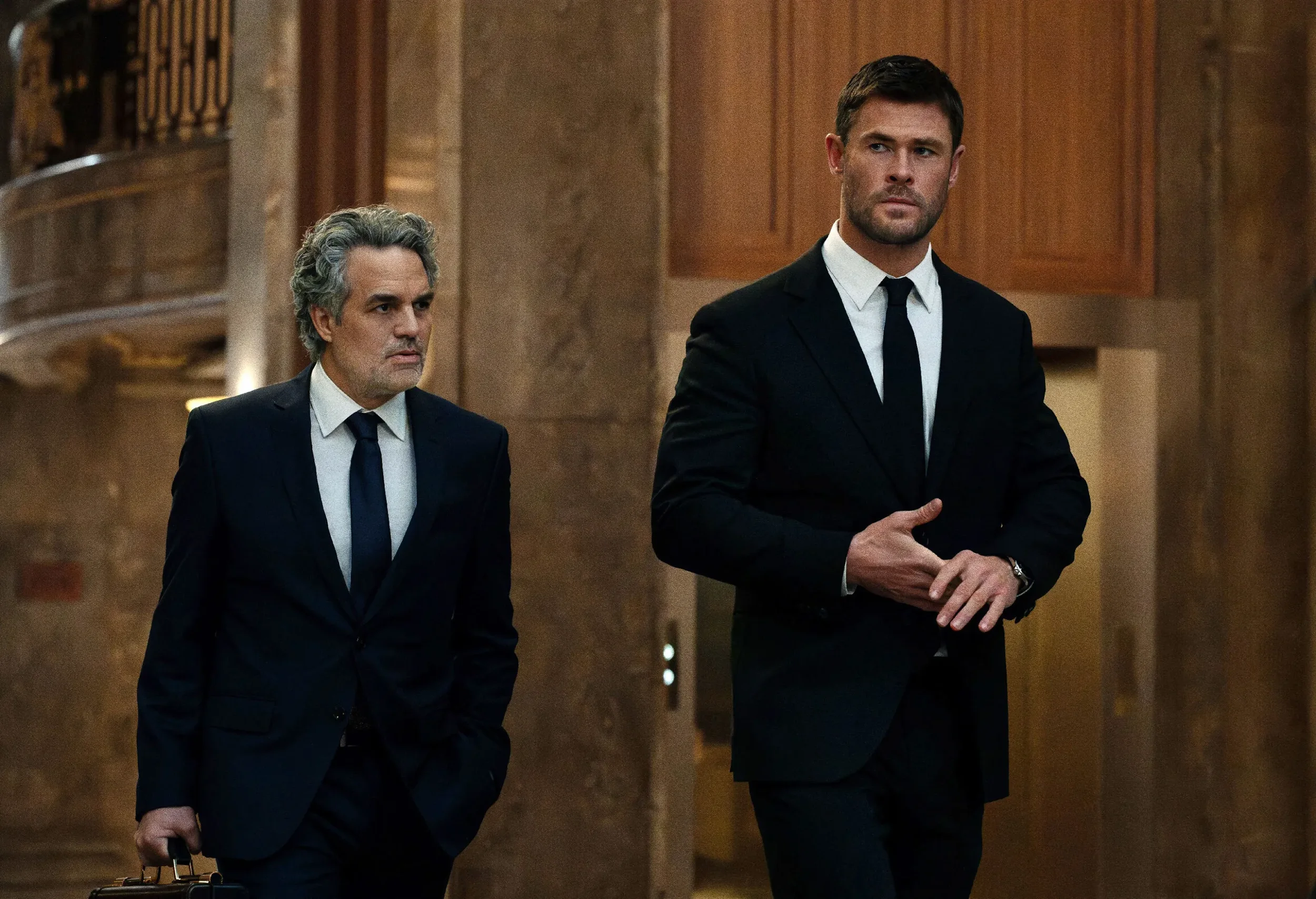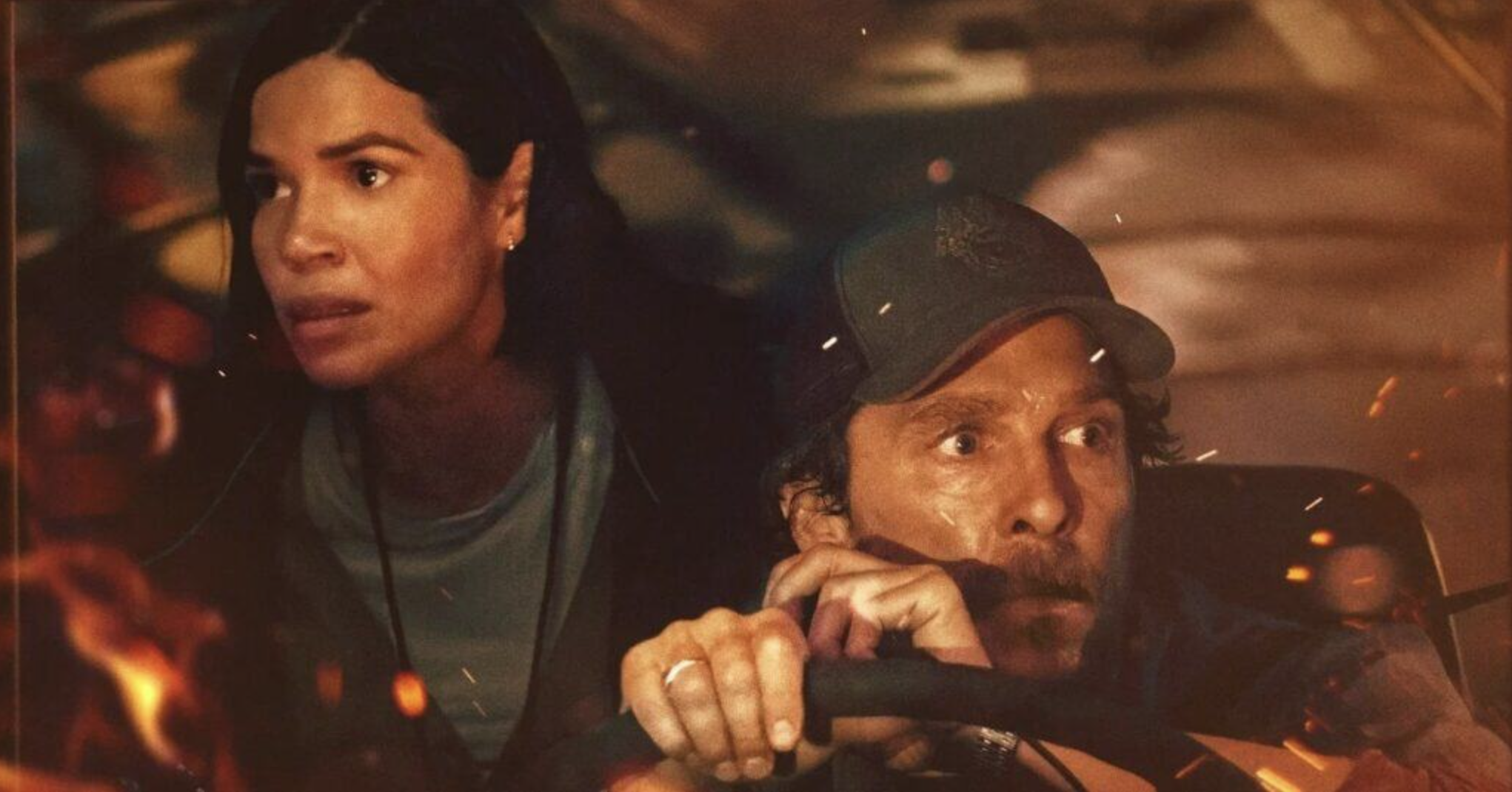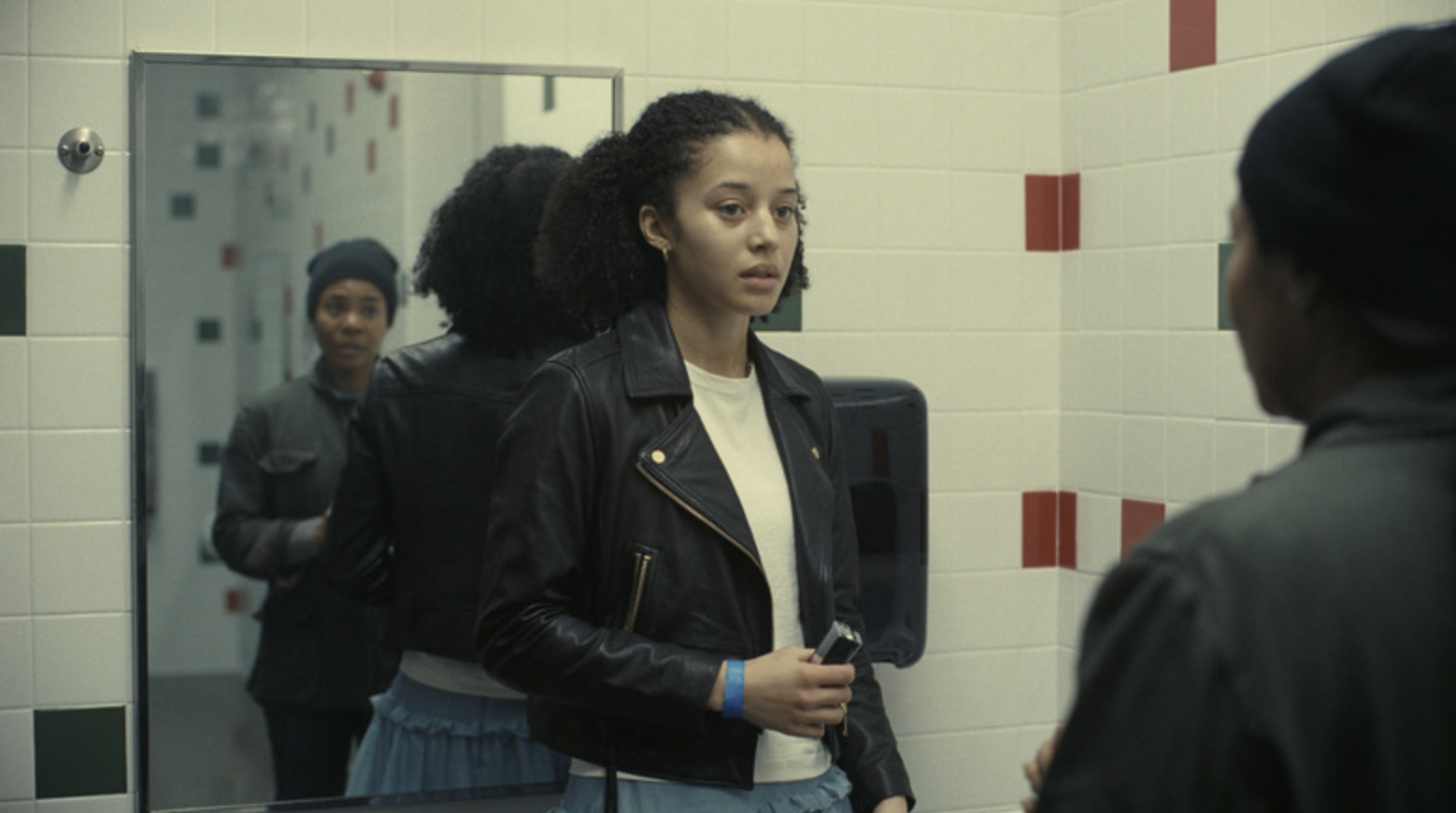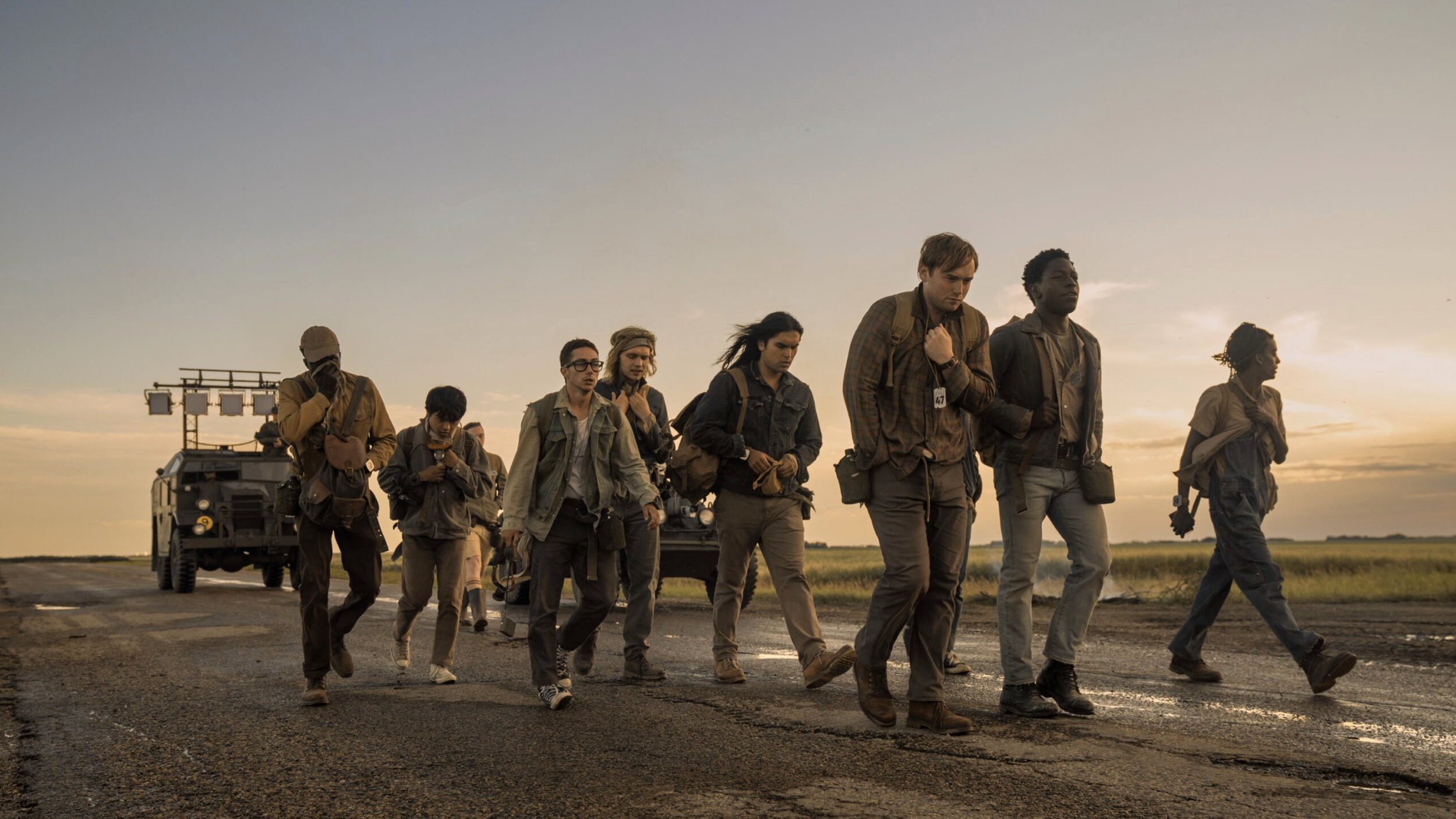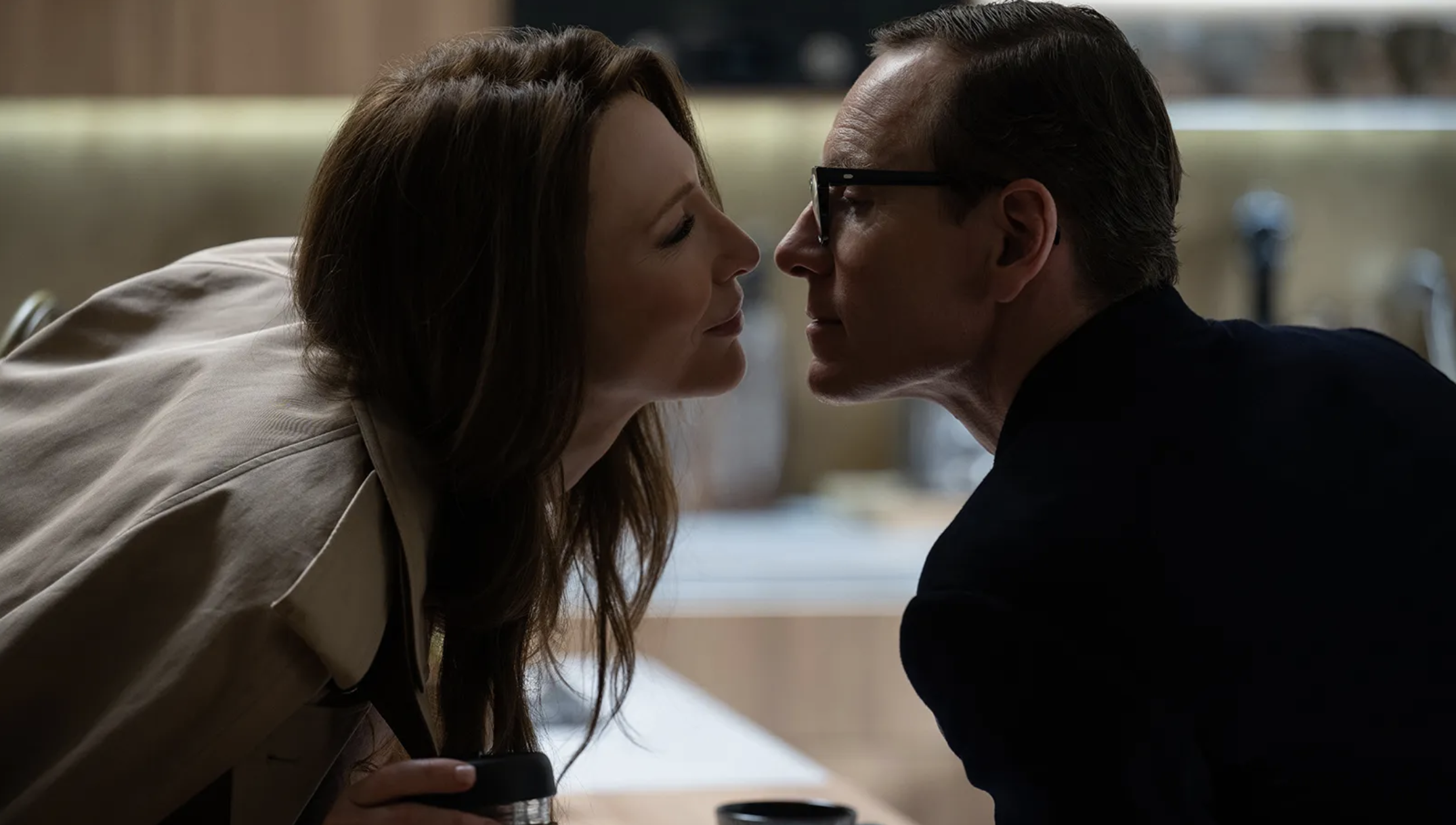CRIME 101
Directing: B+
Acting: B+
Writing: B
Cinematography: A-
Editing: B+
Let’s talk about this title first. It’s dumb, right? It has to be the dumbest thing about this movie, although this movie is mostly not dumb. But apparently I am an idiot, because it did not register to me until I got home how prominently Highway 101 in Los Angeles figures in the plot. Oh, right: duh. It’s a double meaning!
And the cinematography is easily the best thing about Crime 101, from the camera work during car chases, to the many drone shots of the vast city of Los Angeles, painting a surprisingly loving portrait of a city many love to hate. There’s a lot of overhead shots of a freeway—oh, I guess that’s probably Highway 101 right there—and they are consistently beautiful. Cinematographer Erik Wilson (who also, as it happens, shot all three of the Paddington films) will sometimes get a bit artier, shooting the reflection of car lights off the sides of downtown L.A. skyscrapers.
I went into Crime 101 expecting it to be fine, and found myself locked in from start to finish. “Crime” as a genre isn’t particularly my favorite, but if it’s well done I can really get into it. This one, written by director Bart Layton and based on the novella by Don Winslow, features a star studded ensemble cast, each of them introduced at the beginning with no clear connection to each other. For a minute I wondered if this was going to be a jewelry heist version of Crash. Thankfully Crime 101 is just a fun narrative puzzle that clicks satisfyingly into place before your eyes, and has no sense of inflated self-importance.
Chris Hemsworth plays the seasoned thief, a guy from an unclarified but difficult background; Halle Berry is the insurance broker he catches the attention of in an attempt to score what she later calls “walk-away money.” Mark Ruffalo is the cop who is narrowing down his seemingly implausible leads toward catching this thief, whose M.O. is never to use violence against his victims. We get some notable people in smaller parts, such as Nick Nolte as the guy who hires Hemsworth for his jobs, or Jennifer Jason Leigh as Ruffalo’s estranged wife. Leigh only shows up very briefly in a couple of scenes—so brief that, with her straight long blond hair, I mistook her for Patricia Arquette. Honestly, Jennifer Jason Leigh deserves better than this.
Evidently just to mix things up, Nolte’s character hires the clearly unpredictable son of one of his other, now-deceased clients. This young man is played by Barry Keoghan, because who else are you going to get to play an immature loose cannon? (Keoghan also appeared in the previous film Bart Layton directed, American Animals (2018).) This character, who spends a lot of time tailing people on his motorcycle and/or threatening them physically, serves the dual role of throwing a monkey wrench into the plot and then also being a key part of tying up all the narrative threads in the end.
Honestly, this story, such as it is, is not exactly masterful, but it’s good enough. I’ll give it credit for zagging in a few unpredictable directions, particularly when it comes to its couple of prominent female characters. Monica Barbaro plays Hemsworth’s love interest, randomly rear-ending his car before he asks her out, and I was sure she existed only to be later put in peril. Instead, she really exists only to become an uncomfortable mirror of his issues. I can respect that. Halle Berry’s arc in the film takes some unpredictable turns as well. A scene in which she tells off her boss is equal parts contrived and satisfying, and happens in between said story turns.
Crime 101 clearly wants us to pick up on subtext about the City of Los Angeles, and has affection for it while acknowledging its faults. We get regular shots of people living on the streets, and the implication that Hemsworth’s thief once lived there. Ruffalo’s cop deals with a level of police corruption that is both infuriating in its reflection of truth, and a bit heavy handed. Watching this movie, I kept thinking a lot about another crime thriller that doubled as a love letter to L.A., the solid 2004 Michael Mann film Collateral, in which Mark Ruffalo also coincidentally co-starred. Crime 101 is not quite as good as that but it’s close; indeed, it feels a lot like its spiritual sequel.
And I must admit, I have an odd soft spot for the City of Los Angeles, which is widely and unfairly hated; it moves me when a film goes out of its way to bring beauty to its depiction. Movies like Crime 101 give it an unusual sense of place, and a sense of urban surroundings when it is otherwise thought of as just sprawling. Combine this with a great cast and a compelling-enough story given thrilling propulsion by skilled editing, and you’ve got a winner.
There’s a lot going on under the surface in Crime 101.
Overall: B+

